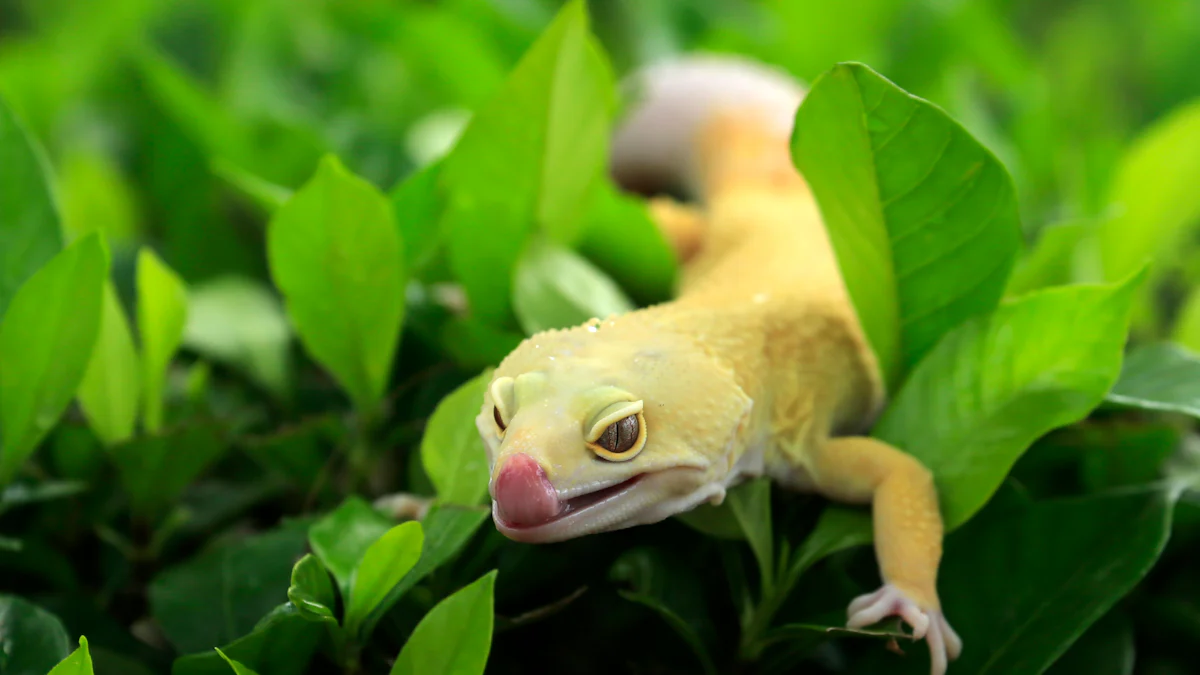
Dry mealworms offer a powerhouse of nutrition for your pets. Packed with protein, healthy fats, and essential micronutrients, they provide the building blocks for energy and vitality. These nutrients help improve coat health, support digestion, and enhance overall well-being. Their long shelf life and easy storage make them a practical choice for pet owners. Whether you care for birds, reptiles, or fish, this versatile food source ensures your pets receive the nourishment they need to thrive.
Key Takeaways
- Dry mealworms are a nutrient-dense food source, rich in protein, healthy fats, and essential vitamins and minerals that support your pet’s overall health.
- Their long shelf life and easy storage make dry mealworms a convenient option for busy pet owners, eliminating worries about spoilage.
- Including dry mealworms in your pet’s diet can improve coat health and skin condition due to their high content of healthy fats and vitamins.
- Protein from dry mealworms provides sustained energy, helping your pets stay active and playful throughout the day.
- Introduce dry mealworms gradually to your pet’s diet to avoid digestive upset, and mix them with other foods for variety and balanced nutrition.
- Monitor portion sizes based on your pet’s type and size to prevent overfeeding and maintain a balanced diet.
- Store dry mealworms properly in a cool, dry place to ensure they remain fresh and safe for your pets.
What Are Dry Mealworms and Why Are They Popular?
What Are Dry Mealworms?
Overview of dry mealworms as a nutrient-dense, shelf-stable food source.
Dry mealworms are a highly nutritious food option for pets. These small, dried larvae come packed with essential nutrients like protein, healthy fats, and vitamins. Their nutrient-dense profile makes them an excellent choice for supporting the health and energy of various animals. Unlike fresh mealworms, the drying process removes moisture, which extends their shelf life significantly. This makes them a convenient and reliable food source that you can store for long periods without worrying about spoilage.
Common uses for dry mealworms in pet and bird diets.
You can use dry mealworms in the diets of many pets, including birds, reptiles, and fish. Birds, especially during breeding or molting seasons, benefit from the high protein content in mealworms. Reptiles enjoy them as a tasty treat that mimics their natural diet. Fish, particularly carnivorous species, thrive on the nutrients provided by mealworms. Whether you’re feeding backyard birds or exotic pets, dry mealworms offer a versatile and easy-to-use option to meet their dietary needs.
Why Are Dry Mealworms a Popular Choice for Pet Owners?
Convenience of storage and long shelf life.
Dry mealworms are incredibly easy to store. Their long shelf life means you don’t have to worry about frequent replacements or spoilage. You can keep them in a cool, dry place, and they’ll remain fresh for months. This convenience saves time and effort, especially if you’re managing multiple pets or feeding wild birds regularly. Unlike live mealworms, they don’t require refrigeration or special care, making them a hassle-free option for busy pet owners.
Versatility for various pets, including birds, reptiles, and fish.
One of the reasons dry mealworms are so popular is their versatility. You can feed them to a wide range of pets, from backyard chickens to aquarium fish. Birds love them for their high protein content, while reptiles enjoy their natural taste and texture. Fish benefit from the balanced nutrients that promote growth and vitality. Whether you have a single pet or a variety of animals, dry mealworms provide a flexible feeding solution that caters to different dietary needs.
Nutritional Content of Dry Mealworms

High Protein Content
Importance of protein for muscle development and repair.
Protein plays a vital role in your pet’s muscle development and repair. It provides the essential building blocks, known as amino acids, that help maintain strong and healthy muscles. When pets engage in daily activities or exercise, their muscles experience wear and tear. Protein ensures these tissues recover efficiently, keeping your pet active and agile. Dry mealworms, with their high protein content, offer an excellent source of this crucial nutrient, making them a valuable addition to your pet’s diet.
Role of protein in sustaining energy levels.
Protein also serves as a key energy source for your pets. It helps sustain their energy levels throughout the day, ensuring they remain lively and playful. Unlike quick-burning carbohydrates, protein provides a steady release of energy, which supports your pet’s endurance and stamina. Feeding dry mealworms to your pets can help them stay energetic and ready to explore their surroundings.
Healthy Fats and Their Benefits
Contribution to a shiny coat and healthy skin.
Healthy fats contribute significantly to your pet’s coat and skin health. These fats provide essential fatty acids, such as omega-3 and omega-6, which nourish the skin and promote a glossy, vibrant coat. Pets with dull fur or dry skin often benefit from diets rich in healthy fats. Dry mealworms contain these beneficial fats, helping your pets look and feel their best.
Support for energy and overall health.
Fats are a concentrated energy source that fuels your pet’s daily activities. They also play a critical role in supporting overall health by aiding in the absorption of fat-soluble vitamins like A, D, E, and K. Including dry mealworms in your pet’s diet ensures they receive these healthy fats, which enhance their vitality and well-being.
Fiber and Digestive Health
How fiber promotes gut health and regular digestion.
Fiber is essential for maintaining a healthy digestive system in pets. It promotes gut health by encouraging the growth of beneficial bacteria in the intestines. Fiber also aids in regular digestion, preventing issues like constipation or diarrhea. While dry mealworms are not a primary fiber source, they complement other fiber-rich foods in your pet’s diet, contributing to a balanced and healthy digestive system.
Micronutrients and Their Role
Key vitamins and minerals in dry mealworms.
Dry mealworms provide a variety of essential vitamins and minerals that support your pet’s health. They contain vitamin B12, which helps with energy production and supports the nervous system. Vitamin E, another key nutrient, acts as an antioxidant, protecting cells from damage. These mealworms also supply iron, which plays a vital role in oxygen transport within the body. Zinc, found in dry mealworms, contributes to healthy skin and proper immune function. Calcium and phosphorus, two important minerals, work together to maintain strong bones and teeth. By including dry mealworms in your pet’s diet, you ensure they receive these critical nutrients.
Support for immune function and bone health.
The micronutrients in dry mealworms strengthen your pet’s immune system. Zinc and vitamin E enhance the body’s ability to fight off infections and maintain overall health. These nutrients also reduce inflammation, promoting faster recovery from minor injuries or illnesses. Calcium and phosphorus, on the other hand, are essential for bone health. They help build and maintain strong skeletal structures, reducing the risk of fractures or bone-related issues. Feeding dry mealworms to your pets supports their immunity and keeps their bones strong and healthy.
Health Benefits of Feeding Dry Mealworms to Pets

Improved Coat and Skin Health
Role of fats and vitamins in maintaining a shiny coat.
Your pet’s coat reflects their overall health. Dry mealworms provide healthy fats, including essential fatty acids like omega-3 and omega-6, which nourish the skin and promote a glossy coat. These fats help reduce dryness and flakiness, ensuring your pet’s fur remains soft and vibrant. Vitamins, such as vitamin E found in dry mealworms, act as antioxidants that protect skin cells from damage. This combination of nutrients supports a healthy, radiant appearance for your pet.
Boosted Energy Levels
How protein and fats provide sustained energy.
Energy is vital for your pet’s daily activities. Dry mealworms deliver a balanced mix of protein and fats, which serve as reliable energy sources. Protein fuels muscle activity and supports endurance, while fats provide concentrated energy that lasts throughout the day. Unlike quick-burning carbohydrates, these nutrients release energy steadily, keeping your pet active and playful. Whether your pet enjoys exploring, playing, or simply staying alert, dry mealworms help maintain their energy levels.
Enhanced Digestive Health
Benefits of fiber for gut health and regularity.
A healthy digestive system ensures your pet absorbs nutrients efficiently. While dry mealworms are not a primary source of fiber, they complement other fiber-rich foods in your pet’s diet. Fiber promotes the growth of beneficial gut bacteria, which aids digestion and supports a balanced microbiome. It also helps regulate bowel movements, reducing the risk of constipation or irregularity. Including dry mealworms in your pet’s meals contributes to a well-rounded diet that supports gut health.
Support for Overall Well-Being
Micronutrients in dry mealworms play a vital role in supporting your pet’s overall well-being. These nutrients strengthen the immune system, helping your pet fight off illnesses more effectively. Zinc, for example, boosts immune responses by promoting the production of white blood cells. Vitamin E acts as an antioxidant, protecting your pet’s body from harmful free radicals that can damage cells.
Strong bones are essential for your pet’s mobility and quality of life. Calcium and phosphorus, found in dry mealworms, work together to maintain bone density and strength. Calcium supports the development of sturdy skeletal structures, while phosphorus ensures proper bone mineralization. These minerals also contribute to healthy teeth, enabling your pet to chew food comfortably.
By including dry mealworms in your pet’s diet, you provide them with a balanced source of these essential micronutrients. This helps ensure they stay active, resilient, and healthy throughout their lives.
Practical Tips for Feeding Dry Mealworms to Pets
How to Introduce Dry Mealworms to Your Pet’s Diet
Gradual introduction to avoid digestive upset.
When adding dry mealworms to your pet’s diet, start slowly. Sudden changes in diet can upset your pet’s digestive system. Begin by offering a small amount and observe how your pet reacts. Gradually increase the quantity over several days. This approach allows your pet’s stomach to adjust to the new food. Pay attention to any signs of discomfort, such as changes in stool or reduced appetite. If you notice any issues, reduce the amount and consult a veterinarian if necessary.
Mixing mealworms with other foods for variety.
To keep your pet’s meals interesting, mix dry mealworms with their regular food. This method not only adds variety but also ensures a balanced diet. For birds, sprinkle mealworms over seeds or fruits. For reptiles, combine them with vegetables or other protein sources. Fish can enjoy mealworms alongside their usual pellets or flakes. Mixing mealworms with other foods encourages your pet to eat and provides a range of nutrients in one meal.
Recommended Portion Sizes
Guidelines for different types of pets and birds.
Portion sizes depend on the type of pet you have. For small birds like finches, a teaspoon of dry mealworms per day is sufficient. Larger birds, such as parrots, may require up to a tablespoon. Reptiles like geckos or bearded dragons can have a few mealworms as a treat, while fish should only receive a small pinch. Always consider your pet’s size, age, and activity level when determining the right portion. Overfeeding can lead to health issues, so stick to recommended amounts.
Avoiding overfeeding to maintain a balanced diet.
Overfeeding dry mealworms can disrupt your pet’s nutritional balance. While they are rich in protein and fats, they should not replace other essential food groups. Use mealworms as a supplement rather than the main diet. Monitor your pet’s weight and energy levels to ensure they remain healthy. If you notice weight gain or reduced activity, adjust the portion size accordingly. A balanced diet promotes long-term health and well-being.
Safety Precautions
Proper storage to prevent spoilage.
Store dry mealworms in a cool, dry place to maintain their freshness. Use an airtight container to protect them from moisture and pests. Avoid exposing them to direct sunlight or high humidity, as this can cause spoilage. Check the packaging for expiration dates and discard any mealworms that appear discolored or have an unusual smell. Proper storage ensures your pet receives safe and high-quality food.
Monitoring your pet’s reaction to new foods.
When introducing dry mealworms, watch your pet closely. Look for signs of allergies or intolerance, such as itching, vomiting, or changes in behavior. If your pet shows any adverse reactions, stop feeding mealworms immediately and consult a veterinarian. Regular monitoring helps you identify potential issues early and ensures your pet enjoys their meals without complications.
Dry mealworms provide a nutrient-rich and convenient food option for your pets. Their high protein content, healthy fats, and essential micronutrients contribute to better energy levels, improved coat health, and enhanced digestion. These benefits support your pet’s overall well-being and vitality. By introducing dry mealworms into your pet’s diet responsibly, you can ensure they receive the nourishment they need. Make this simple addition to promote your pet’s health and happiness while enjoying the ease of storage and feeding.


